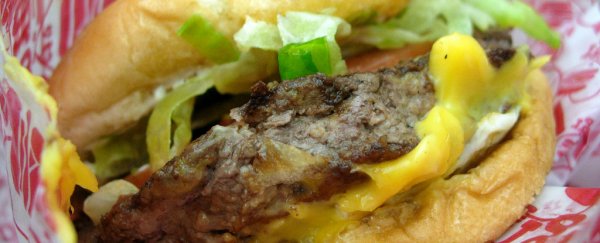Most of us are happy to spend big on restaurant-quality food, with the assumption that it's significantly better for us than grabbing a Big Mac and fries. But research in the US has shown that eating out - regardless of whether it's at a fast food place or an upmarket restaurant - causes people to consume on average 200 more calories a day than home cooking.
The study looked at the food choices of more than 18,000 adults and found that while restaurant diners tend to get more vitamins and 'good' nutrients than those chowing down on KFC, there's not a huge amount of difference in terms of calories and fat. In fact, in some cases, restaurant meals were packed with more 'unhealthy' nutrients such as salt and cholesterol than offerings from fast food joints.
"People who ate at full-service restaurants consumed significantly more cholesterol per day than people who ate at home," lead researcher Ruopeng An from the University of Illinois in the US said in a press release. "This extra intake of cholesterol, about 58 milligrams per day, accounts for 20 percent of the recommended upper bound of total cholesterol intake of 300 milligrams per day."
This infographic shows a full breakdown of the differences in saturated fat, sodium and calories between home eating, restaurant food, and fast food. But before you cancel your dinner reservations and order a stuffed-crust pizza, there are a few holes in the study that are worth pointing out.
For starters, all the data were taken between 2003 and 2010 from the National Health and Nutrition Examination Survey, which regularly surveys US adults about what they've eaten over a two-day period. This means the researchers had a lot of data to use, but they're relying on the participants to accurately self-report what they've eaten (which is notoriously sketchy) and generic nutritional analyses of those foods, rather than actual chemical comparisons of restaurant food versus fast food.
Plus, the study only took into account the nutritional content of food, rather than other factors that could affect health, such as its glycaemic index, which refers to how a food affects our blood sugar levels. With that in mind, it's worth taking the results with a grain of salt (pun totally intended), but there is still some valuable information to be gleaned. What the study makes apparent is that when we don't know what's in our food, we tend to make less healthy choices, and public health policies need to target eating out in general, rather than simply attacking fast food chains.
"People don't know much about the food provided by full-service restaurants, and if it is better or healthier compared to fast food or compared to food prepared and consumed at home," An told Reuters Health. "So people who consume food at full-service restaurants are not aware of the calorie and nutrient content in the food served [and] are more likely to overeat and are less cautious about the extra calories they intake from the full-service restaurant."
The results have been published in the European Journal of Clinical Nutrition, and summarised in this handy infographic.
Based on these findings, the healthiest choice is simply to prepare our own nutritious meals at home, but in today's busy world, most of us would find that pretty challenging to keep up. So if nothing else, at least it's some consolation to know that grabbing a takeaway burger isn't going to be that much worse for your calorie-count than forking out for a restaurant lunch, even if the nutrients you'll be getting are few and far between.
